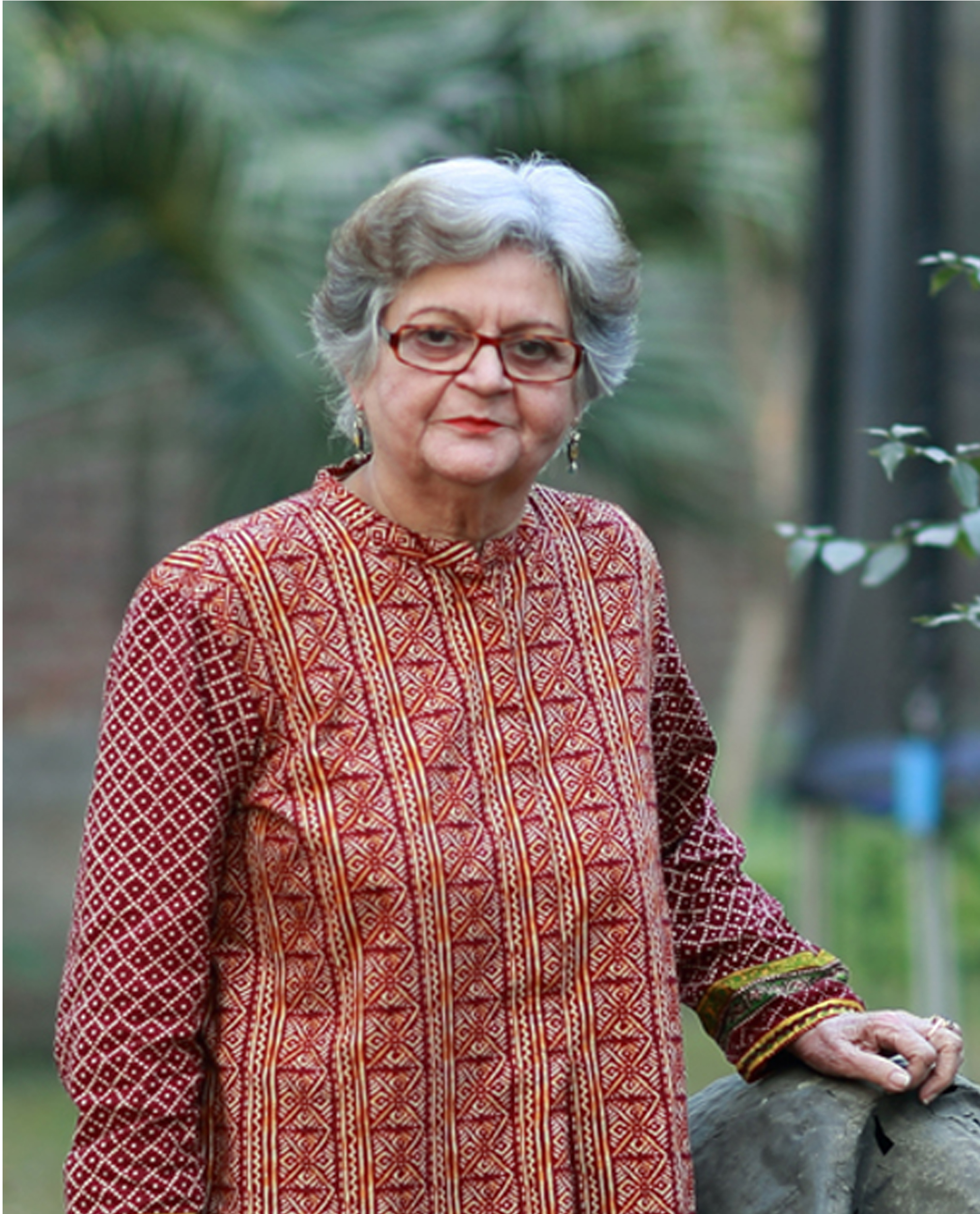Dr. Esha Niyogi De has published a new, single-authored monograph, Women's Transborder Cinema: Authorship, Stardom, and Filmic Labor in South Asia, available on University of Illinois Press' website.
You are here
PLS 2020 | Salima Hashmi
 Salima Hashmi will be leading a series of presentations at the University of Texas at Austin, Sarah Lawrence College, and Columbia University (Dates TBA) as part of the Pakistan Lecture Series.
Salima Hashmi will be leading a series of presentations at the University of Texas at Austin, Sarah Lawrence College, and Columbia University (Dates TBA) as part of the Pakistan Lecture Series.
Salima Hashmi (born 1942) is the daughter of poet Faiz Ahmed Faiz and Alys Faiz. She studied design at Lahore's National College of Arts before moving to England and studying at the Bath Academy of Art. She later returned as a professor to the National College of Arts. Aside from her renowned artistry, she is a vocal anti-nuclear weapon activist.
The University of Texas at Austin: "Resistance and Resilience: Art Practices and Women's Voices in Pakistan"
From the defiant ‘Pakistani Women Artists’ Manifesto’ signed by 15 women artists during the military regime of General Zia-ul-Haq, to the daring performance artists of today, women’s voices in Pakistan have steered art practice. This talk examines the intensive, creative interrogation into the social and political fabric by women artists over the last thirty years. Innovative strategies and diverse narratives have encouraged artist collectives, as well as collaboration between artists and artisans, poets, researchers, and activists. Alongside domestic craft traditions, artistic expression incorporates new media to produce nuanced and vibrant work across the country. Women art educators, curators, gallerists, and critics have led these conversations, often marked by wit and irony.
Sarah Lawrence College: "Curating Pakistani Women: Art and Politics at Home and in the Diaspora"
This illustrated talk examines the last three decades of Pakistani women artists’ work in relationship to the turbulence in Pakistani politics. The multiple social and ideological constraints put in place during the military regime of General Zia-ul-Haq, which came to power in the late seventies, continue to plague civil society and creative expression. Yet curiously, these decades have witnessed the blossoming of highly innovative art making by women, most recently in collaboration with women writers, anthropologists, artisans, and activists. Their nuanced and vibrant artistic expression embraces new technologies and processes from all parts of the country, interrogating issues of ethnic, class and religious divisions, discriminatory laws, and violence against women, alongside sly critiques of social norms and hallowed traditions. In the process, these artists through their practice – creative, material and institutional -- are carving out spatial imaginary designed to destabilize norms and assumptions regarding Pakistan within the country and externally in the diaspora.
Columbia University: "Resistance and Resilience: Art Practices and Women's Voices in Pakistan"
